Welcome to issue 77 of the Call to Comms!
For this first edition of TSF News, the recap part of this new version of the Call to Comms newsletter, discover the latest updates at TSF and on the topic of technology in humanitarian action. This month, a new project to contribute to disaster resilience in Central America, TSF’s declaration for World Humanitarian Day and a telecom training for first responders in South-East Asia.
Thank you for supporting us!
Central America: contributing to community resilience

Central America, a region prone to disasters
Central America and the Caribbean is the second-most disaster-prone in the world, with “extreme weather and seismic events occurring in places where poverty, displacement and violence are already part of daily life”. Climate change and climate phenomena like El Niño increase the frequency and intensity of disasters.
Hurricane Beryl intensified in part due to unusually warm ocean temperatures, causing extensive damage and a power and internet blackout, highlighting the need for responders and populations to have Internet access during and after natural disasters, from response coordination to information gathering.
How do we plan to contribute to community resilience in Central America?
To support communities with internet access, this project will focus on collaboration. We will partner with local organizations to install disaster-resilient emergency connectivity equipment in places that are already providing humanitarian assistance and are ready to shelter affected populations in the event of a natural disaster. During emergencies, responders and populations will then have reliable internet access in places they already would gather to in severe weather events.
This project will also reinforce TSF’s emergency-response teams, so that we can deploy and support the response during emergencies, in cases such as the Otis ouragan in Mexico, 2023, or the tropical storm Eta in Honduras, 2020.
"The project aims to build local capacities for resilient internet access in coordination with response actors who consistently assist the population at sites they have already established and operate. In this way, the installed capacity will serve a dual purpose; on one hand, it will provide humanitarian services to populations in mobility, and in times of emergency, to affected local populations, thus aiming for immediate impact actions that are sustainable in the long term."
Armando, Manager for this project and Regional Manager for the Caribbean and Latin America
World Humanitarian Day
World Humanitarian Day, a day of remembrance created by the UN after a bomb attack killed 22 humanitarian workers in 2003, is in a few days, on August 19. It is the occasion to advocate for the well-being and dignity of people affected by crises, and the safety of humanitarian workers.
This year’s theme, #ActForHumanity, alerts us: 2023 was the deadliest year on record for humanitarian workers, and 2024 could be even worse. National staff are at a particularly high risk – in 2022, they represented 96% of the aid workers killed. In 2024, with humanitarian crises such as the ones in South Sudan and Gaza, humanitarian workers face even more violence.
Télécoms Sans Frontières joins the call to end these violations of international law, and protect civilians and humanitarian workers.
As an NGO specializing in information and communication technologies, we strive to connect humanitarian organizations when they need it most to contribute to their security on the ground, and to provide crucial, sometimes life-saving, information to affected communities so they can be aware of the safest options and resources.
Everyone needs to be part of the discussion to meet these challenges, especially the 2.6 billion people who currently have no access to the internet, the majority of whom are in the worst-affected countries. We believe that technology, when used ethically and responsibly, can play a pivotal role in humanitarian action.
Indonesia - Training for regional telecoms responders
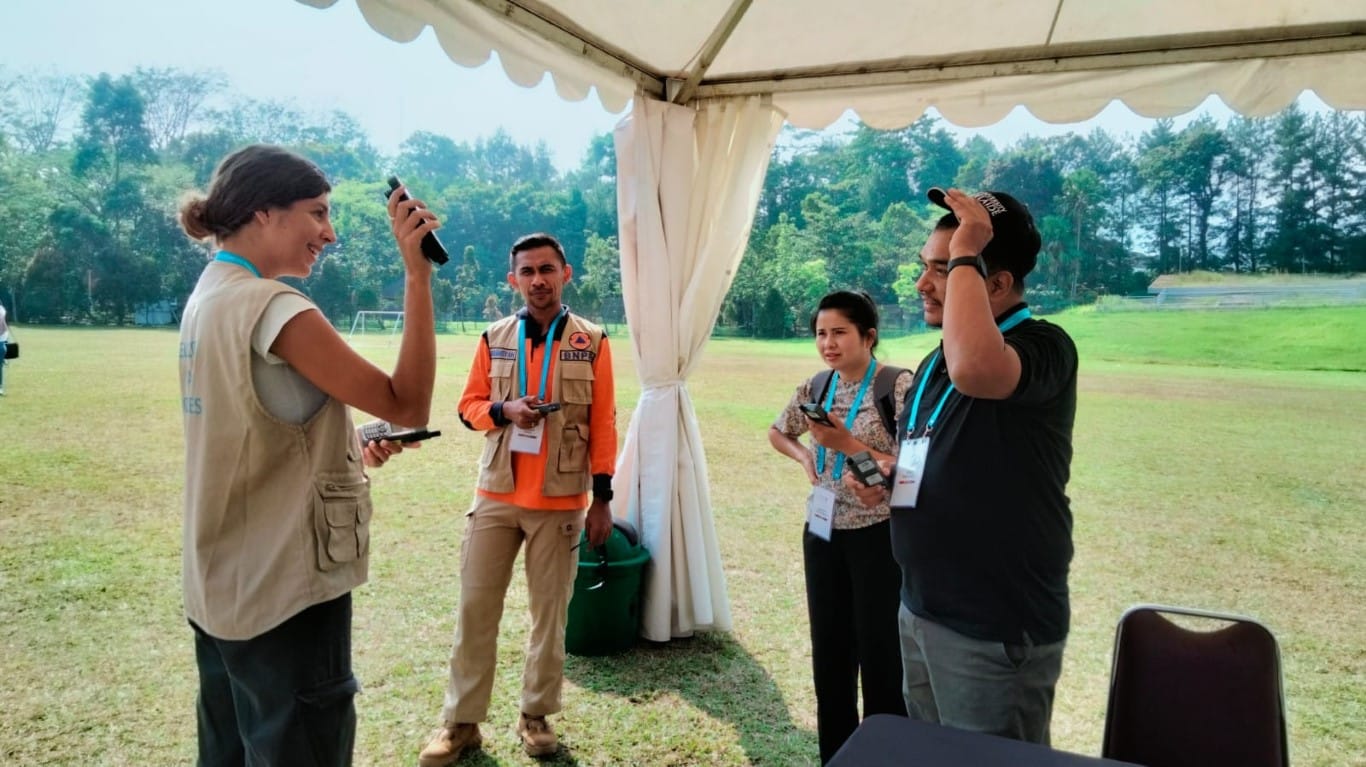
As part of the regional emergency telecoms resilience project launched in 2021, TSF is organizing a training session for the AHA Center's Emergency response team in Jakarta this month.
The project, supported by the Internet Society Foundation, provided regional response teams with equipment and training to strengthen telecoms response capabilities of intergovernmental organizations in two disaster-prone regions, South-East Asia and the Caribbean.
The recent response to Hurricane Beryl showed a direct positive effect of the project by allowing smooth coordination between CDEMA and TSF responders, streamlining a direct deployment to the affected areas.
The training course organized this month in Jakarta is the final stage of the project. It also strengthens the links between TSF and the AHA Center in order to improve the telecoms response to humanitarian emergencies. In particular, to better meet the communication needs of communities affected by crises in the region.
Meet Irinah, manager of TSF’s community center in Madagascar
In case you missed our last portrait: Irinah has been working for TSF in Madagascar for almost 10 years. She explains why digital inclusion is important in the country, and how she works and advocates for it.
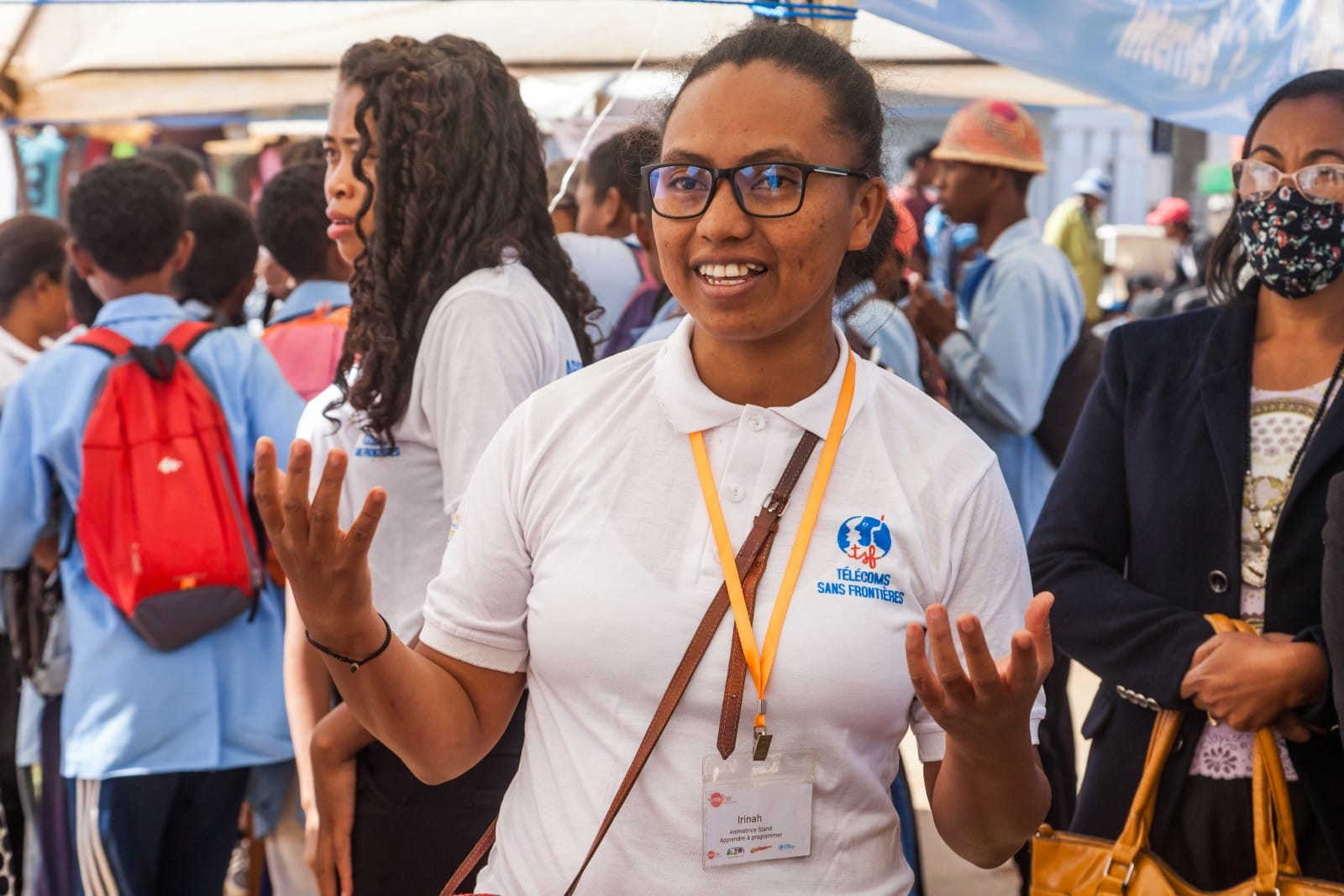
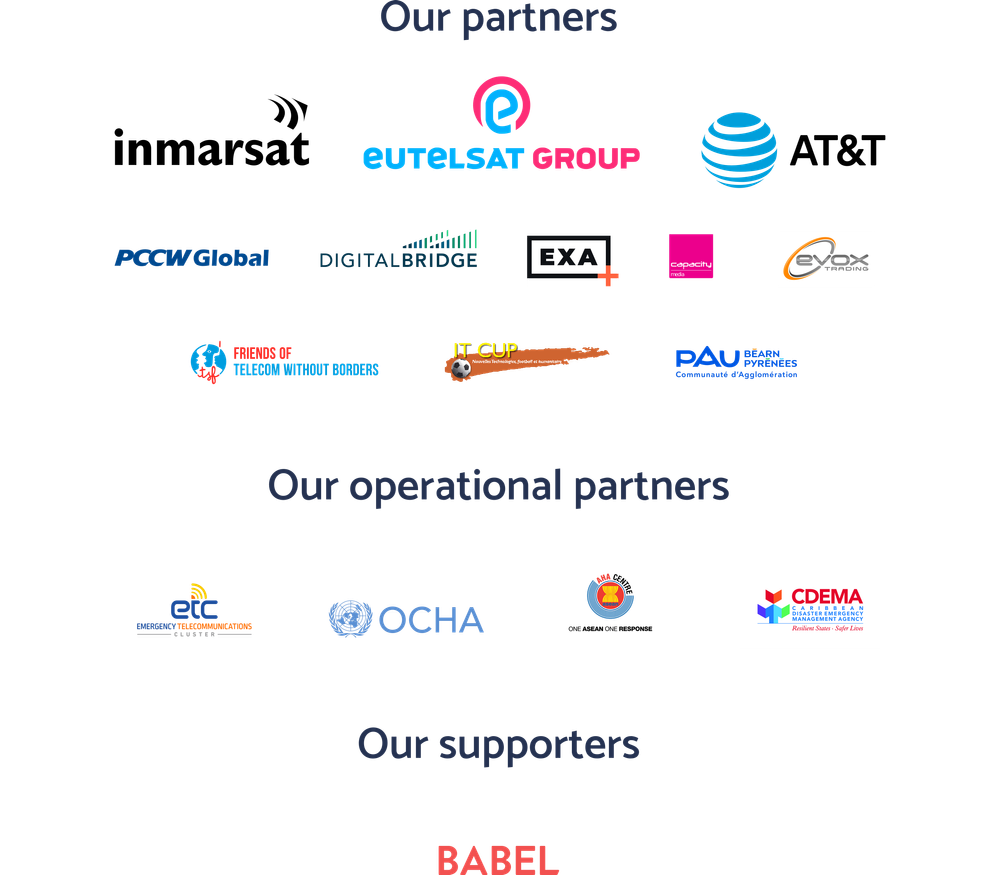

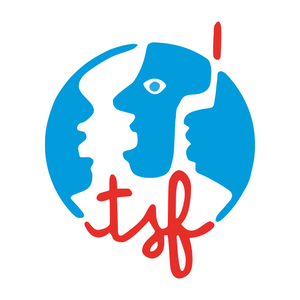
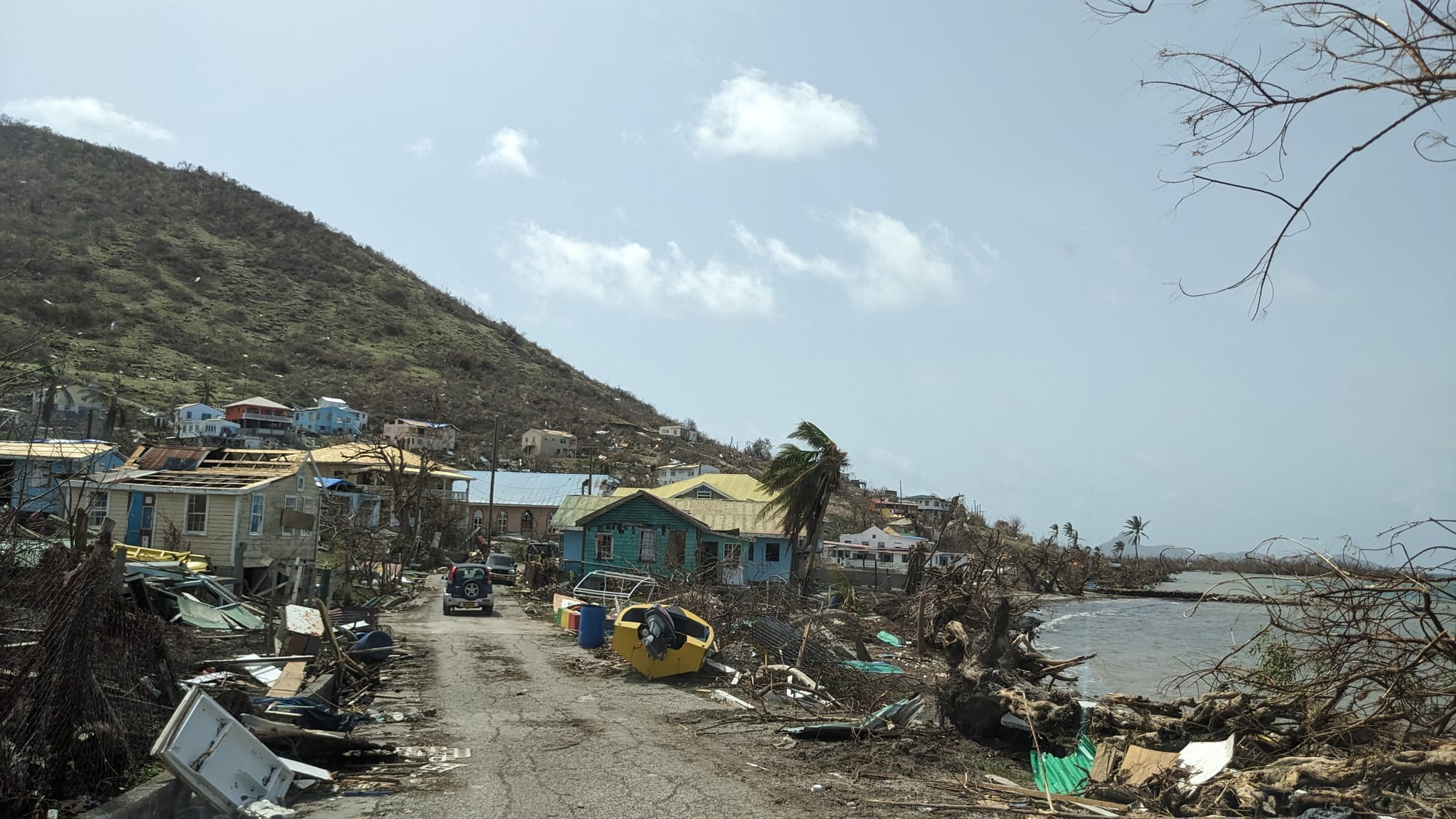




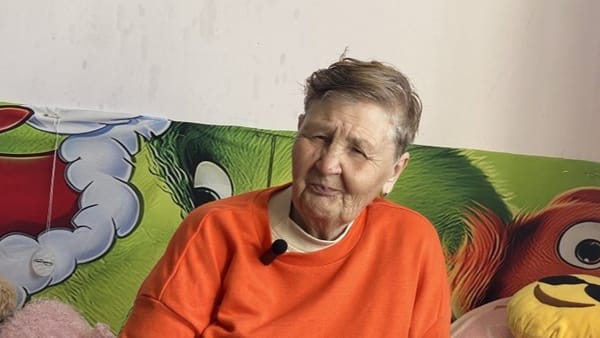
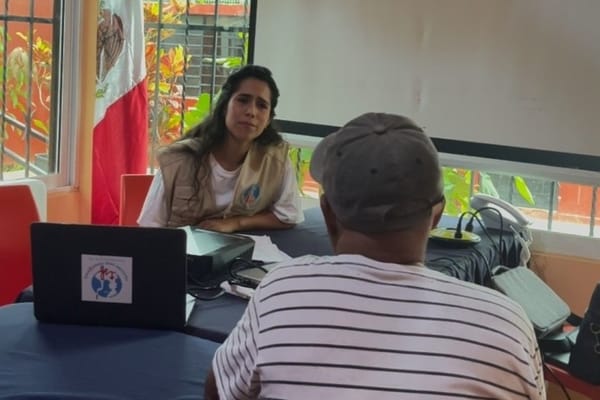

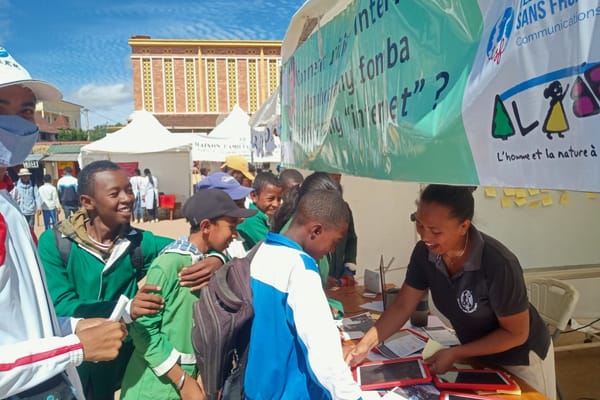
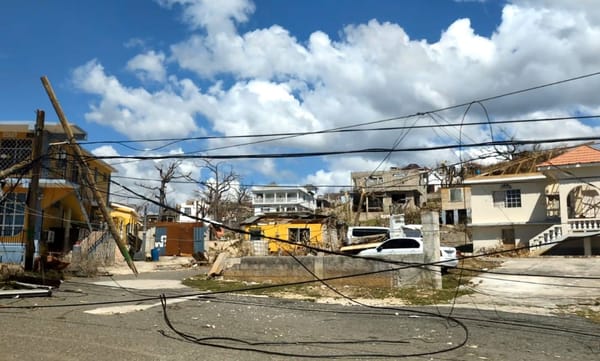
Member discussion